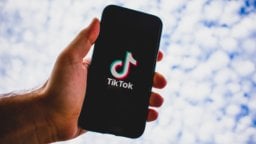China’s Cyberspace Administration of China (CAC) last month unveiled a proposed set of rules that would apply to the development and use of generative AI technologies in the country.
If enacted, this would actually be the second round of rules to guide AI that CAC and other government agencies have put out.
The first round, released last December and enacted on January 10 of this year, targeted the use of “deep synthesis,” or what has come to be known colloquially as “deepfakes.”
Under those rules – titled the Administrative Provisions on Deep Synthesis for Internet Information Service – anyone who creates audio, video or text using generative AI is required to label their content as such.
If an AI user edits someone’s voice or image, they are required to notify the person in question and get their consent.
As reported by the South China Morning Post, those rules have prompted the Chinese version of TikTok, known as Douyin, to announce new rules surrounding the use of AI on its own platform. Amongst those rules are the requirement to clearly label if content was generated by AI.
The Bytedance-owned short video app announced on Tuesday (May 9) a set of 11 principles to guide the use of AI – and the company warned that violating the rules, including copyright infringement using AI, would be “severely penalised”.
On top of the requirements to label AI-generated content, and to notify people if their images are manipulated using AI, Douyin’s new rules state:
- Any virtual person that is created has to be registered with Douyin, and the real person behind the creation has to have their identity verified.
- Publishers are responsible for the consequences of AI-generated content, “no matter how the content is generated.”
- The use of AI to create copyright-infringing content is forbidden.
- It is forbidden to use AI to create “content that violates scientific common sense, falsifies, and spreads rumors.”
Other points reiterate that illegal content will be banned, as will “dissemination of false information.”
Douyin said: “Especially in the field of content creation, generative artificial intelligence technology has lowered the threshold of creation, enriched the Internet content ecology, and brought new changes and opportunities for information production and dissemination. But at the same time, the content generated by artificial intelligence is difficult to identify, and it also brings problems such as false information and infringement.”
Additionally, Douyin said it would provide users with tools to detect AI-generated content, create a system allowing users to register avatars, and provide feedback channels that will enable users to report content that violates the rules.
The new rules are similar to – though not the same as – rules introduced by Bytedance’s other short-form video app, TikTok, in March.
Under those rules, synthetic or manipulated media has to be labeled with a tag such as “synthetic,” “fake” or “altered.”
However, TikTok’s rules expressly forbade “synthetic media that contains the likeness of any real private figure.”
In an update to its community guidelines, TikTok said: “While we provide more latitude for public figures, we do not want them to be the subject of abuse, or for people to be misled by political or financial issues. We do not allow synthetic media of public figures if the content is used for endorsements or violates any other policy. This includes prohibitions on hate speech, sexual exploitation and serious forms of harassment.”
“Especially in the field of content creation, generative artificial intelligence technology has lowered the threshold of creation, enriched the Internet content ecology, and brought new changes and opportunities for information production and dissemination.”
Douyin
The new rules at TikTok and Douyin come as Bytedance appears to be significantly expanding its own involvement with AI. The company last year went on a hiring spree in the machine-learning field, with its subsidiary Mawf hiring specialists in the field of AI music creation.
Earlier this month, MBW spotted that Bytedance had posted an ad for a Product Manager in Los Angeles to join a team that is “working on an AI-powered tool that provides intelligent music creation and audio editing capabilities.”
Meanwhile, its TikTok division was hiring for a “Music Creator Operations Manager” to join a department that “develop[s] music production tools and AI-generated music compositions.”
The new rules for Bytedance’s Douyin come less than a month after China’s CAC published a set of proposals for AI technology that, among other things, would require tech companies to submit security assessments of their AI tech to a “national network information department” before their AI services could be used by the public.
AI service providers would be required to make sure that users “scientifically understand and rationally use” AI tools.
Plus, AI-generated content “should reflect the core values of socialism, and must not contain subversion of state power, overthrow of the socialist system, incitement to split the country, undermine national unity, promote terrorism, extremism, and promote ethnic hatred and ethnic discrimination, violence, obscene and pornographic information, false information, and content that may disrupt economic and social order,” the CAC’s proposed rules state.
Many observers are taking notice that China seems to be leaping ahead of the US in developing rules for AI.
In the music industry, music companies are voicing their concern over the proliferation of AI-generated music.
According to a report in April at the Financial Times, UMG has told streaming services such as Spotify and Apple to block AI technologies from scraping lyrics and melodies from its copyrighted songs.
“This next generation of technology poses significant issues,” a person close to the situation told FT.
“Much of [generative AI] is trained on popular music. You could say: compose a song that has the lyrics to be like Taylor Swift, but the vocals to be in the style of Bruno Mars, but I want the theme to be more Harry Styles. The output you get is due to the fact the AI has been trained on those artists’ intellectual property.”Music Business Worldwide




